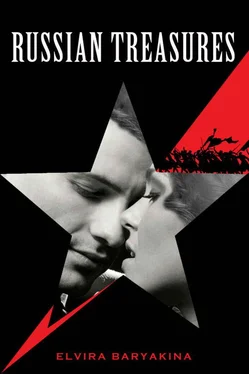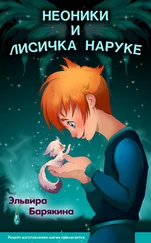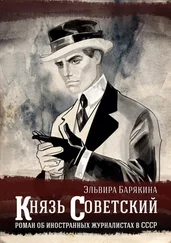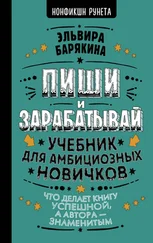“Mr. Rogov, if you wish, I can let Nina have your prize. Whatever you say.”
The reflection of the candle flame flickered on Fomin’s forehead, slick with sweat. The corners of his mouth twitched.
“There’s no need to look so frightened.” He laughed. “After all, you wouldn’t be apart for very long. The Reds will be here in a couple of hours, and they’ll kill the rest of us. Then we’ll meet in heaven and laugh over our memories.”
“Hands up!” shouted a clear boyish voice as a group of scrawny teenagers armed with rifles appeared in the doorway.
Startled, Fomin dropped the revolver on the tablecloth and raised his hands. A second later, he realized that the intruders were mere boys trembling at their own effrontery.
“What do you want?” Fomin demanded angrily.
He reached for his revolver, but the older boy pressed his rifle to Fomin’s chest while the second boy grasped the gun. “We need to talk about our father—Jacob Froiman.”
Fomin grimaced. “I see. Well, young men, have a seat.”
The older boy turned to Klim. “You must leave now. We have a score to settle.”
Klim grabbed Nina’s hand, and they ran outside. The sky above the trees was bathed in an orange glow.
“Who were those boys?” Nina whispered.
“The vanguard of Soviet power,” said Klim. “Come on. We need to find a place to hide.”
A rifle shot rang out inside the house.
1
No sooner had Sofia Karlovna boarded the dreadnought Waldeck-Rousseau than the nightmare of Novorossiysk fell away, and she found herself in France. She was given a five-course dinner and a cabin with a bath along with a now subdued and obliging Shushunov, who had gotten himself a place on the ship by passing himself off as her butler.
Although the ship was far from shore, clouds of smoke and the glow of fires could still be seen from the direction of the port. Sofia Karlovna wasn’t looking in that direction. The sea was calm, the clear sky was the color of lilac, and the moon was rising over the mountains like a worn cameo.
The evacuated cadets from the Alexander Military School lined up on the ship’s deck to sing a prayer. The old countess listened to their clear young voices and crossed herself.
Everything was as it should be: the mistress of the ball was bidding farewell to her guests and wishing them a good night. Now, she could rest while the servants swept up the rubbish and cleared the dishes from the tables.
2
A year later in Montmartre, Sofia Karlovna read in a newspaper that—following the tragedy in Novorossiysk—some Whites had fled and others had been taken prisoner. Many more, believing that they would be given amnesty, had taken part in a voluntary registration. All of those who had registered had been arrested. Some had been sent to labor camps while others—drafted into the ranks of the Red Army—had taken part in the bloodbath that was the Polish war.
The Poles had prevented the victorious Red Army from rushing westward, forcing the Bolsheviks to abandon their dream of the World Revolution. At least for a while.
Russian Treasures Book 1
White Ghosts Book 2
The Prince of the Soviets Book 3
Visit Elvira Baryakina’s website to learn more about Klim Rogov and Nina Kupina:
http://www.baryakina.com/en/
If you enjoyed Russian Treasures , please leave a review on Amazonand Goodreads.
Your feedback is very important for the author.
THANKS!
Translated from Russian by Elvira Baryakina, Rose France and Simon Geoghegan
This book is a work of fiction. Any references to historical events, real people, or real places are used fictitiously. Other names, characters, places, and events are products of the author’s imagination, and any resemblance to actual events or places or persons, living or dead, is entirely coincidental.
Copyright © 2018 Elvira Baryakina
All rights reserved, including the right to reproduce this book or portions thereof in any form whatsoever. For more information, visit http://baryakina.com/en/
ISBN: 978-1-7325840-1-3










